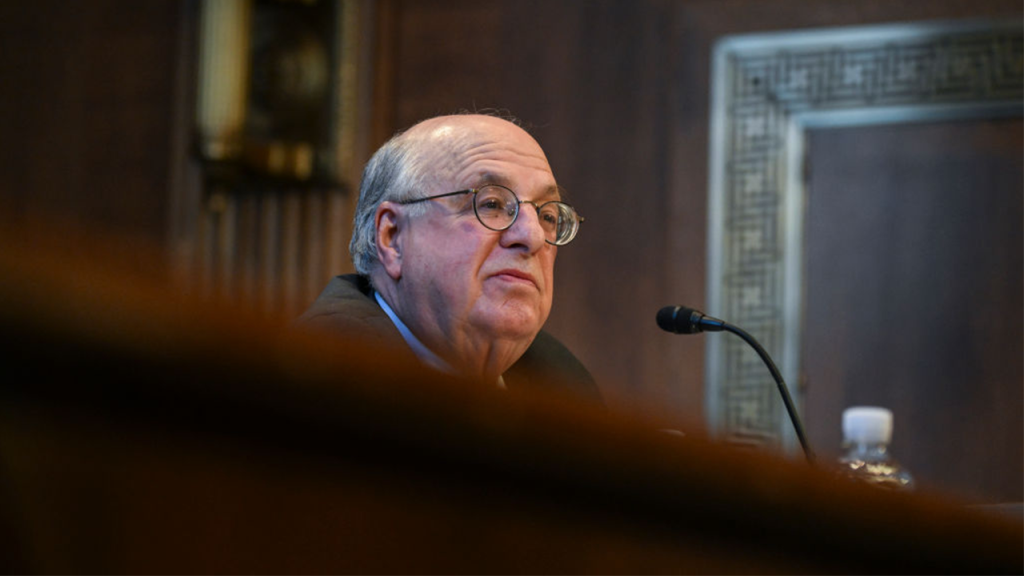Federal Judge Mark Wolf Resigns in Protest Against Trump Administration
In a bold and principled stand, Senior U.S. District Judge Mark Wolf of Massachusetts has resigned from his lifetime appointment to the federal bench, citing what he describes as an “assault on the rule of law” by the Trump administration. At 78 years old, Judge Wolf, appointed by President Reagan in 1985, announced his resignation last Friday, ending a distinguished judicial career spanning nearly four decades. His decision marks a rare instance of a federal judge stepping down explicitly as a form of protest against a sitting president.
In a powerful essay published in The Atlantic, Wolf explained his decision, writing that he “no longer can bear to be restrained by what judges can say publicly or do outside the courtroom.” The judge, who has dedicated more than 50 years of his life to the Department of Justice and the judiciary, expressed grave concerns about President Trump “using the law for partisan purposes, targeting his adversaries while sparing his friends and donors from investigation, prosecution, and possible punishment.” For Wolf, the situation had reached a breaking point where silence became “intolerable.” His resignation represents a deeply personal sacrifice, giving up the prestigious position he once proudly accepted as part of a federal judiciary working “to make our country’s ideal of equal justice under law a reality.”
Judge Wolf’s critique of the Trump administration is both specific and sweeping. He expressed alarm over what he perceives as politically motivated prosecutions against figures like former FBI Director James Comey and New York Attorney General Letitia James. Wolf also highlighted Trump’s social media calls for prosecutions against political opponents and emphasized that even prosecutions ending in acquittal “can have devastating consequences for the defendant.” The former judge accused Trump of ignoring the fundamental principle that prosecutors should only seek indictments when they have “sufficient admissible evidence to prove guilt beyond a reasonable doubt.” Beyond individual cases, Wolf condemned what he characterized as “unconstitutional or otherwise illegal” executive orders, criticized Trump’s calls for judges to be impeached for ruling against him, and expressed concern about “corruption by [Trump] and those in his orbit.”
Wolf’s decision to resign comes with a crucial reassurance: Trump cannot replace him with a nominee of his own choosing. Obama appointee Judge Indira Talwani has already been named as his successor. This fact may have given Wolf additional freedom to take this extraordinary step without concerns about who might fill his vacant seat. Moving forward, Wolf intends to leverage his newfound freedom from judicial constraints to “speak out, support litigation, and work with other individuals and organizations dedicated to protecting the rule of law and American democracy.” He also plans to advocate for judges who remain on the bench and “cannot speak publicly for themselves” due to ethical restrictions that limit what sitting judges can say about political matters.
In explaining his motivation, Wolf invoked the words of Robert F. Kennedy, who said in 1966 regarding the fight against apartheid in South Africa: “Each time a man stands up for an ideal, or acts to improve the lot of others, or strikes out against injustice, he sends forth a tiny ripple of hope.” Wolf acknowledged that he “cannot be confident” his actions will make a difference but expressed hope that enough such “ripples” could eventually “become a tidal wave” against threats to democratic institutions. This sentiment reflects both the humility and determination that have characterized Wolf’s long career in public service.
The U.S. District Court for the District of Massachusetts responded to Wolf’s resignation with praise for his distinguished service. Chief Judge Denise J. Casper highlighted Wolf’s “steadfast commitment to the rule of law, determination in wrestling with novel issues of fact and law, and dedication to making fair, equitable and legally sound decisions without fear or favor” as “hallmarks of his time on the bench.” The court also noted Wolf’s significant contributions during his tenure as Chief Judge, including initiatives to increase engagement with the legal community and his support for the Court’s Fellowship Programs. While his departure represents a personal protest against the current administration, Wolf leaves behind a substantial legacy of jurisprudence that, according to his colleagues, has “had a great impact” on American law.















